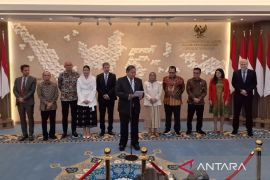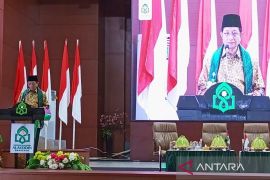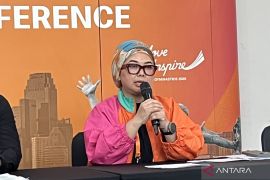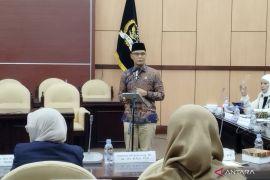These include the ICJ’s reignited credibility, new precedent on requesting provisional measures for genocide, innovations in arguing ‘genocidal intent’ by South Africa, and that despite support from Western powers, Israel is not legally untouchable.
As widely reported, South Africa had earlier accused Israel of violating the ‘Genocide Convention’ and took them to the ICJ, a court body of the United Nations (UN) on January 11-12, 2024.
Now, while the result fell short of a ceasefire, the ICJ ruled that there is evidence of Palestinians being targeted for potentially genocidal acts, and therefore, deserve protection from Israel’s actions.
The ICJ ordered Israel to adopt six provisional measures to immediately and effectively protect the rights of Palestinians in Gaza.
Israel is required to take all measures to prevent all genocidal acts according to the Genocide Convention, ensure its military does not commit such acts, and prevent and punish any incitement to commit genocide against Palestinians.
Furthermore, Israel should ensure the provision of basic services and humanitarian assistance to the Palestinians, preserve evidence of its accused genocide, and report to the ICJ on what it has done to follow these orders within one month.
Responses to the ICJ’s decision varied. South African Foreign Minister Naledi Pandor gave her statement soon after the result, reiterating her country’s solidarity and telling Palestinians to not give up hope.
Palestinian Foreign Minister Riyadh Al Maliki highlighted how the ICJ has given an “important reminder that no state is above the law” and reaffirmed his gratitude for South Africa’s efforts.
Meanwhile, Israel's Prime Minister Netanyahu stated his intentions to continue the Gaza assault in ‘self-defense.’
The European Union appears to support the ruling, stating that it expects the court order’s “full, immediate, and effective implementation” from all parties.
As per legal and political perspectives, the ICJ’s ruling should be viewed as decisive for its reputation as the world’s largest court.
The ICJ’s legitimacy has been internationally criticized in the past for its earlier decisions on genocide.
This includes the Bosnian Genocide in 1995, where the ICJ unpopularly decided that though a genocide had occurred, the accused country Serbia was neither responsible nor complicit. Over 20 years later, the South Africa versus Israel case could be called a ‘litmus test’ for the ICJ’s credibility and appears to be an overall success, though it still did not order a ceasefire.
The ICJ also took the opportunity to remind signing countries of the Genocide Convention that international law applies to all parties.
When lawyers from South Africa and Israel first met at the ICJ in earlier January, they had several disputes.
Arguably, the most important dispute was whether ‘genocidal acts’ alone were enough to request emergency orders to stop Israel’s assault or if proving ‘genocidal intention’ was also necessary at this stage.
The ICJ has now shown the world that South Africa was correct, and Israel’s violent actions in Gaza were enough to demand immediate measures to protect Palestinians in Gaza. The ICJ even rejected Israel’s petition to throw out the case and said there is an urgency to prevent irreparable harm to Palestinians.
This sets an important precedent for future cases. Moving forward, the ICJ can be expected to be more consistent in placing provisional measures upon future countries suspected of genocidal acts.
In addition, the ICJ’s approval of South Africa’s request highlights the innovative way that South African lawyers argued that Israel had ‘genocidal intent’ in court. South Africa’s lawyers cited public statements of high-ranking Israeli officials and ministers that incited the military to prevent basic services, including food and energy for Palestinians.
This evidence was crucial to the ICJ decision. During the court hearing, South African lawyer Tembeka Ngcukaitobi argued, “Israel’s political leaders, military commanders and persons holding official positions have systematically and in explicit terms declared their genocidal intent,” and that those statements were communicated and repeated by Israeli soldiers in Gaza.
Lastly, the ICJ’s ruling ultimately shows that though it is backed by major Western countries, Israel is not legally untouchable.
This reality brings implications to countries, such as Indonesia, which are among the biggest supporters of Palestine in Southeast Asia. The ICJ’s decision marks a historical success for countries, particularly in the Global South, to push back against Israel’s aggression in Gaza via legal channels than just diplomatic.
Hence, while countries like Indonesia are not party to the Genocide Convention and cannot sue Israel for genocide, the recent ruling may still be a good sign.
In February, Indonesia's Foreign Minister Retno Marsudi as well as other Palestine-supporting countries are expected to partake in requesting the ICJ’s advisory opinion on Israel’s occupation in Gaza.
Since the case was heard by the ICJ, other Palestine-supporting countries have made maneuvers to demand ceasefire in Gaza and express disapproval towards Israel.
Most recently, diplomats of member countries of the Organisation of Islamic Countries walked out of a UN Security Council meeting on Jan 25 during an address by Israel’s representative.
Currently, after the ICJ’s favorable decision, it is left to be seen how this legal-diplomatic victory will convert into real actions to restrain Israel’s assault in Gaza.
Nonetheless, these new court orders can be expected to reduce Israel’s support from other nations that do not wish to be complicit in genocide and the sufferings of Palestinian civilians.
*) Rifqy Tenribali Eshanasir is a Postgraduate Student of International Law and Diplomacy, The Australian National University, and Recipient of the LPDP Scholarship.
The views and opinions expressed on this page are those of the author and do not necessarily reflect the official policy or position of ANTARA News Agency.
Related news: Netanyahu's stance on Palestinian statehood unacceptable: Widodo
Related news: Israel must comply with the ICJ decision: Foreign Ministry
Copyright © ANTARA 2024












